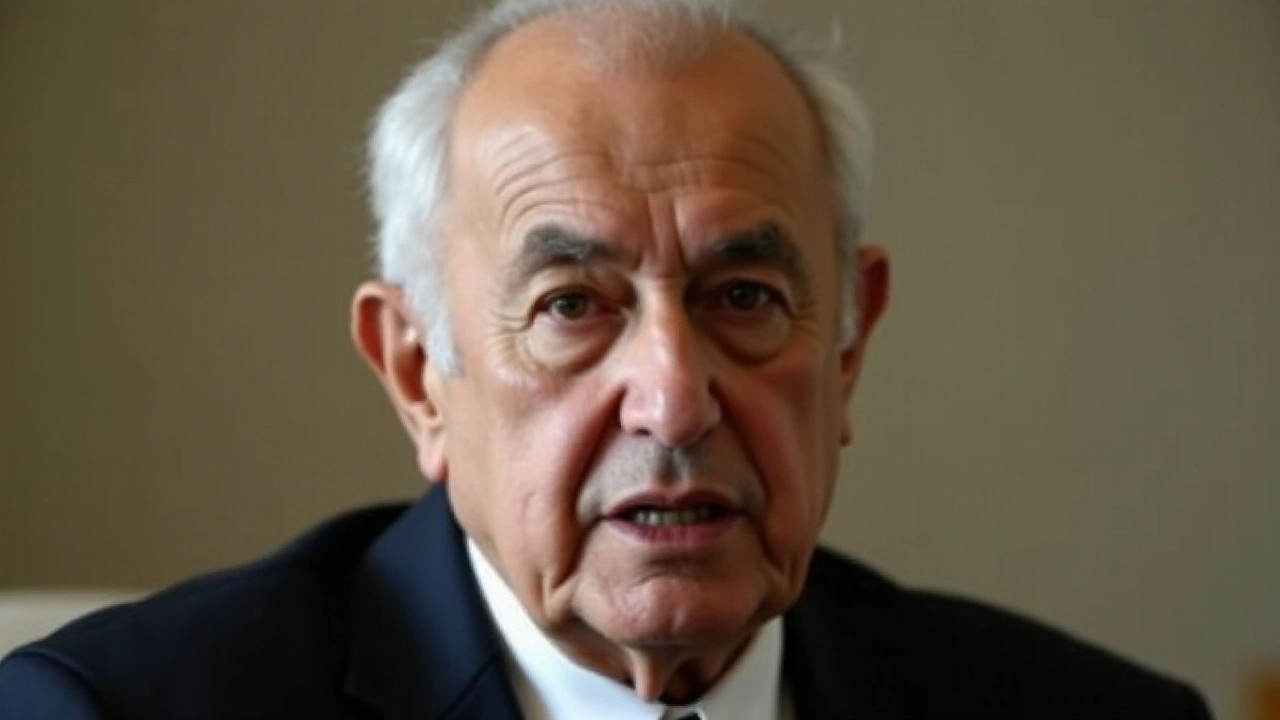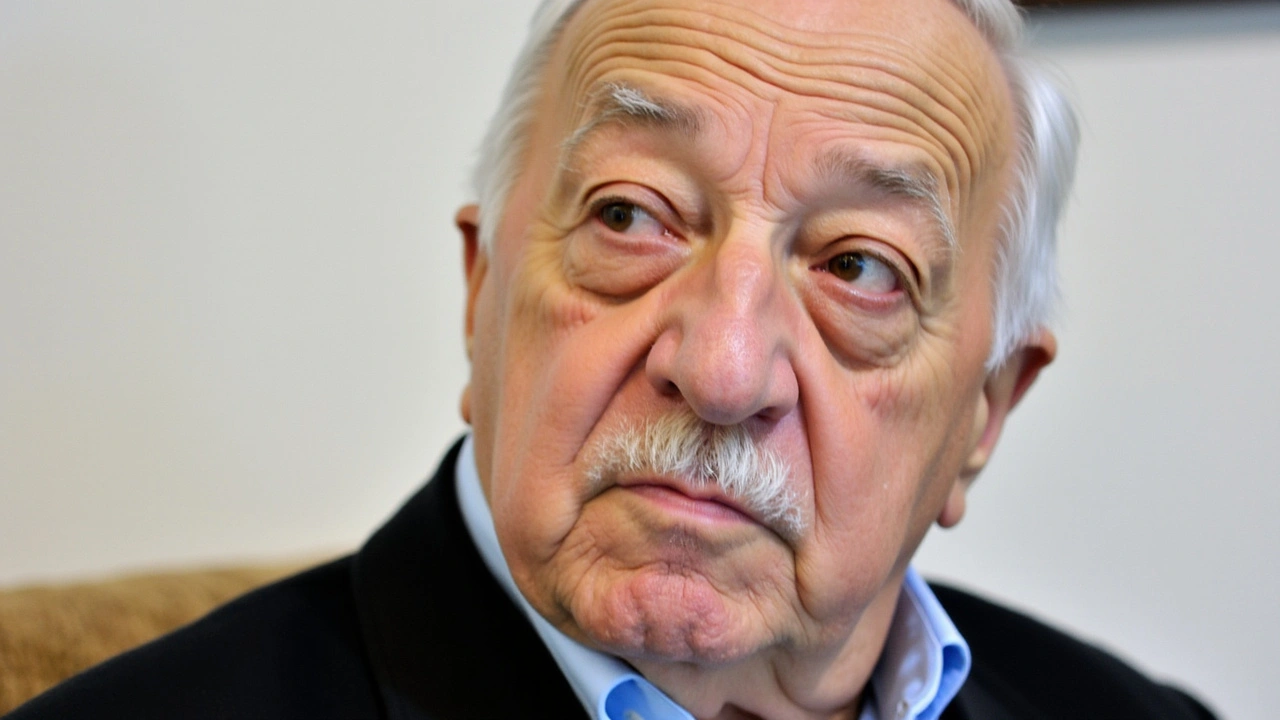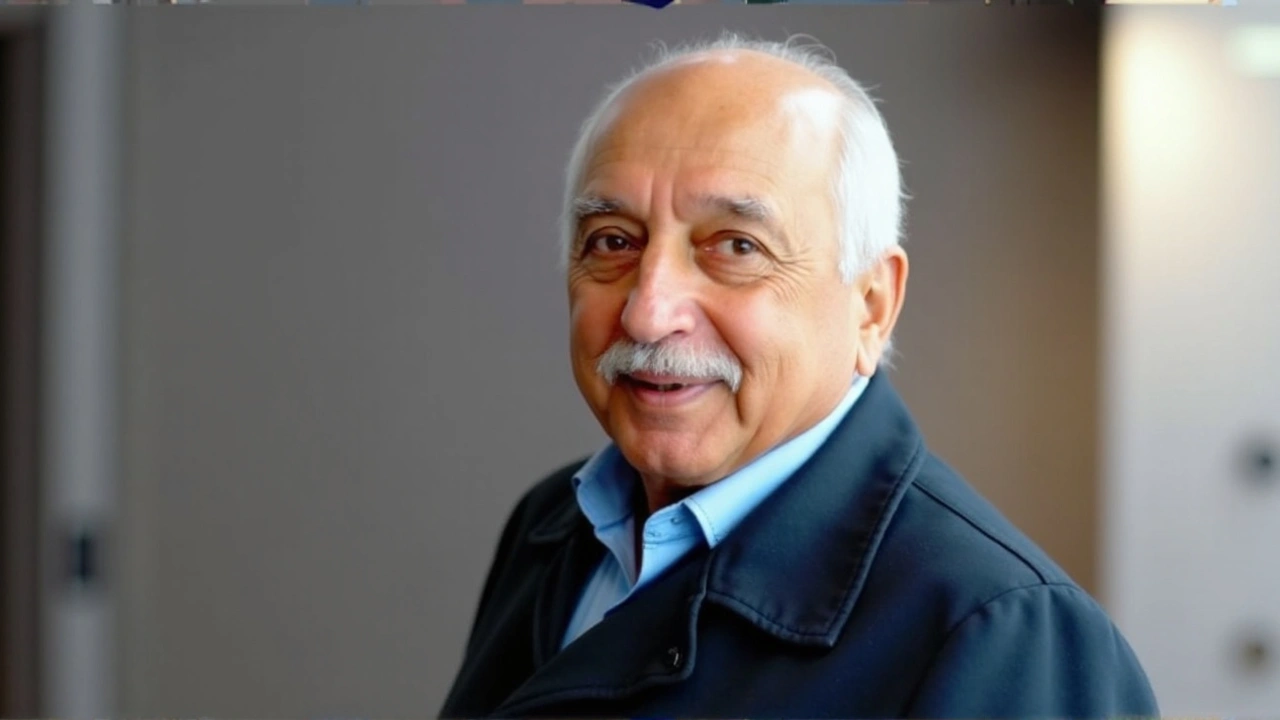Impactful Legacy and Controversial Life of Fethullah Gulen: Turkish Preacher and Erdogan Rival Dies at 83
 Oct, 21 2024
Oct, 21 2024
Fethullah Gulen, the influential Turkish preacher whose complex and controversial relationship with Turkey's President Recep Tayyip Erdogan shaped politics and education in Turkey and beyond, has died in the United States at the age of 83. Gulen had been living in self-imposed exile in rural Pennsylvania, distancing himself physically yet remaining a potent figure in Turkish ideological and political discourse. His passing marks the end of a chapter fraught with intrigue, ideological clashes, and countless accusations.
Life and Ideological Influence
Born in the humble surroundings of eastern Turkey, Fethullah Gulen rose to become a major religious figure through his foundation, Hizmet, which means "service” in Turkish. Hizmet, widely recognized for its focus on social and educational endeavors, established schools, charities, and media outlets that reached across the globe. Gulen advocated for interfaith dialogue, often reaching out to build bridges across religious and cultural divides, and positioning himself as a modern Islamic leader. His teachings, which millions have adhered to, emphasize moderate Islam, science, and education, aligning closely with Turkish nationalism yet rooted in universal human values.
From Political Ally to Rival
At one time, Gulen and Erdogan were allies, sharing a vision for a more religiously attuned nation. This relationship rapidly disintegrated as both men pursued power, resulting in an ideological and political rift that grew fractious over the years. Erdogan accused Gulen of orchestrating a nefarious "parallel state" — a shadowy network within existing institutional frameworks— aiming to overthrow the government. This perceived threat brewed into a full-scale accusation following the July 15, 2016, failed coup attempt, where parts of the Turkish military tried to seize control. The coup was abruptly quashed, but the fallout was extensive and transformative for Turkey's political landscape.

Accusations and Crackdowns
The Turkish government attributed the coup's orchestration to Gulen, launching an extensive purge involving the military, judiciary, public service, and educational sector. Widely reported, various sectors saw mass arrests and detentions, suspensions of thousands of teaching licenses, and the shutdown of entities allegedly linked to Gulen’s Hizmet network. Yet, Gulen continued to ardently deny any involvement in the attempt, from his remote compound in Saylorsburg, Pennsylvania. "I really don't know 0.1% of the people in this movement," he once remarked, stating his role was simply to guide through discourse rather than direct actions.
Life in Exile
Throughout his time in exile, Gulen remained a keen observer of Turkey's evolving dynamics. Although isolated geographically, his opinions wielded considerable sway, and Hizmet supporters frequently challenged Erdogan’s narrative. Media outlets close to Gulen, notably Herkul which publishes his sermons, remained critical of Erdogan’s policies and provided a conduit for Gulen's messages in response to ongoing events in Turkey. These pronouncements were influential among Gulen's followers, arguably providing counterbalance against Erdogan’s political machinery.

Legacy and Future Reflections
Fethullah Gulen's death heralds questions about the future of the Hizmet movement, and what his absence might mean for Turkish politics. While the movement's influence has waned under governmental oppression, its educational establishments abroad continue to flourish, fostering educational opportunities that imbibe Gulen’s philosophies. For Erdogan and his administration, Gulen’s physical departure might be a pivotal moment to reconcile with Hizmet supporters and reinvent Turkey's global position. For Gulen’s followers, his legacy endures as a testament to resilient faith and the pursuit of collective goodwill even amidst adversity.
As Turkey reflects on Gulen’s complicated legacy, it remains clear his life's work has left an indelible mark not just on his followers but also on the broader narrative of Turkish history. Whether marked by collaboration, conflict, or controversy, Fethullah Gulen's life story offers a fascinating glimpse into the intersections of faith, politics, and societal transformation in Turkey over the last half-century.

Naveen Kumar Lokanatha
October 21, 2024 AT 23:00The passing of Fethullah Gulen marks a signifcant moment in contemporary Turkish discourse it forces scholars and policy observers alike to reflect on the dualities of his influence, both as an educator and a political catalyst
Alastair Moreton
October 24, 2024 AT 06:33Honestly, Gulen's whole narrative is just a convenient myth for those who can't accept Erdogan's rise, it's all drama and no substance, and the so‑called 'service' network is nothing but a political shield lol
Surya Shrestha
October 26, 2024 AT 14:07One must, inevitably, interrogate the epistemological foundations upon which the Gulenian paradigm is constructed; indeed, the confluence of pluralistic educational aspirations and clandestine political maneuverings necessitates a rigorous, quasi‑scholarly dissection, thereby rendering any simplistic binary untenable, as the historiographical record unequivocally demonstrates, albeit obfuscated by propagandist narratives.
Rahul kumar
October 28, 2024 AT 20:40Actually, the Hizmet schools have, in many countries, achieved impressive STEM results, and many alumni credit the curriculum for their success – the model emphasizes critical thinking over rote memorization, and thats a key point many overlook
mary oconnell
October 31, 2024 AT 04:13From a post‑structuralist lens, the Gulen–Erdogan dialectic epitomizes the hyperreal simulation of dissent, where each side projects an ideational façade whilst the underlying power dynamics remain unchanged – a truly spectacular theatre of self‑referential narratives, wouldn’t you say?
Michael Laffitte
November 2, 2024 AT 11:47Wow, that’s a dramatic way to put it! The whole saga feels like an endless opera, each aria louder than the last, and we’re just the captive audience.
sahil jain
November 4, 2024 AT 19:20What a saga.
Bruce Moncrieff
November 7, 2024 AT 02:53The intertwining of religious reform and geopolitical strategy in Gulen’s legacy is fascinating; it showcases how soft power can be wielded through educational institutions, influencing generations far beyond Turkey’s borders, and it underscores the importance of scrutinizing such networks with a critical yet open mind.
Dee Boyd
November 9, 2024 AT 10:27While some romanticize these “soft‑power” endeavours, it’s essential to recognize that they often masquerade as altruism, obscuring underlying agendas that can destabilize societies under the guise of benevolent service.
Carol Wild
November 11, 2024 AT 18:00The Gulen episode, when examined through the prism of statecraft, reveals a labyrinthine tapestry of allegiances and betrayals that defy simplistic categorization. Each revelation about covert funding channels or clandestine meetings deepens the sense that we are only skimming the surface of a much larger geopolitical chessboard. Observers who dismiss the entire phenomenon as mere propaganda often overlook the painstakingly documented testimonies of former insiders. Moreover, the timing of the 2016 coup attempt, coinciding with a surge of diplomatic negotiations between Ankara and Washington, suggests an intricate backdrop of foreign influence. Scholars have pointed out that the very language used in leaked memos bears striking resemblance to previous strategic outlines drafted by rival factions within the Turkish bureaucracy. Adding to the intrigue, several former military officers have anonymously hinted at a shadow network that operates beyond the reach of conventional oversight. This network, according to their accounts, leverages educational institutions as recruitment hubs, thereby weaving ideological loyalty into the fabric of everyday life. Critics argue that such claims are speculative, yet the pattern of arrests and asset seizures following the alleged coup indicates a systematic crackdown on a genuinely pervasive apparatus. The international community’s reaction, oscillating between concern for human rights and strategic partnership, further complicates the narrative. It is worth noting that the diaspora’s role in amplifying Gulen’s message cannot be ignored, as transnational ties often serve as conduits for both cultural exchange and covert coordination. While the Turkish government frames the entire movement as a monolithic “parallel state,” the reality appears to be a mosaic of loosely connected entities pursuing overlapping objectives. Consequently, any attempt to distill the saga into a binary good‑versus‑evil story does a disservice to the nuanced reality on the ground. In sum, the Gulen affair remains a quintessential case study of how ideology, power, and geopolitics intersect in the modern era, leaving scholars to grapple with a narrative that is as complex as it is compelling.
Rahul Sharma
November 14, 2024 AT 01:33Given the evidence presented, it is clear that the narrative surrounding Gulen is far more nuanced than the conspiratorial hysteria suggests; thus, scholars must adopt a balanced approach, acknowledging both legitimate concerns and the overblown speculation that clouds objective analysis.
Emily Kadanec
November 16, 2024 AT 09:07It’s obvious that anyone who ignores the documented links is simply willfully blind.
william wijaya
November 18, 2024 AT 16:40I get why that perspective feels frustrating; many people are looking for clarity amid a cloud of mixed signals, and it’s tough when the truth seems perpetually out of reach.